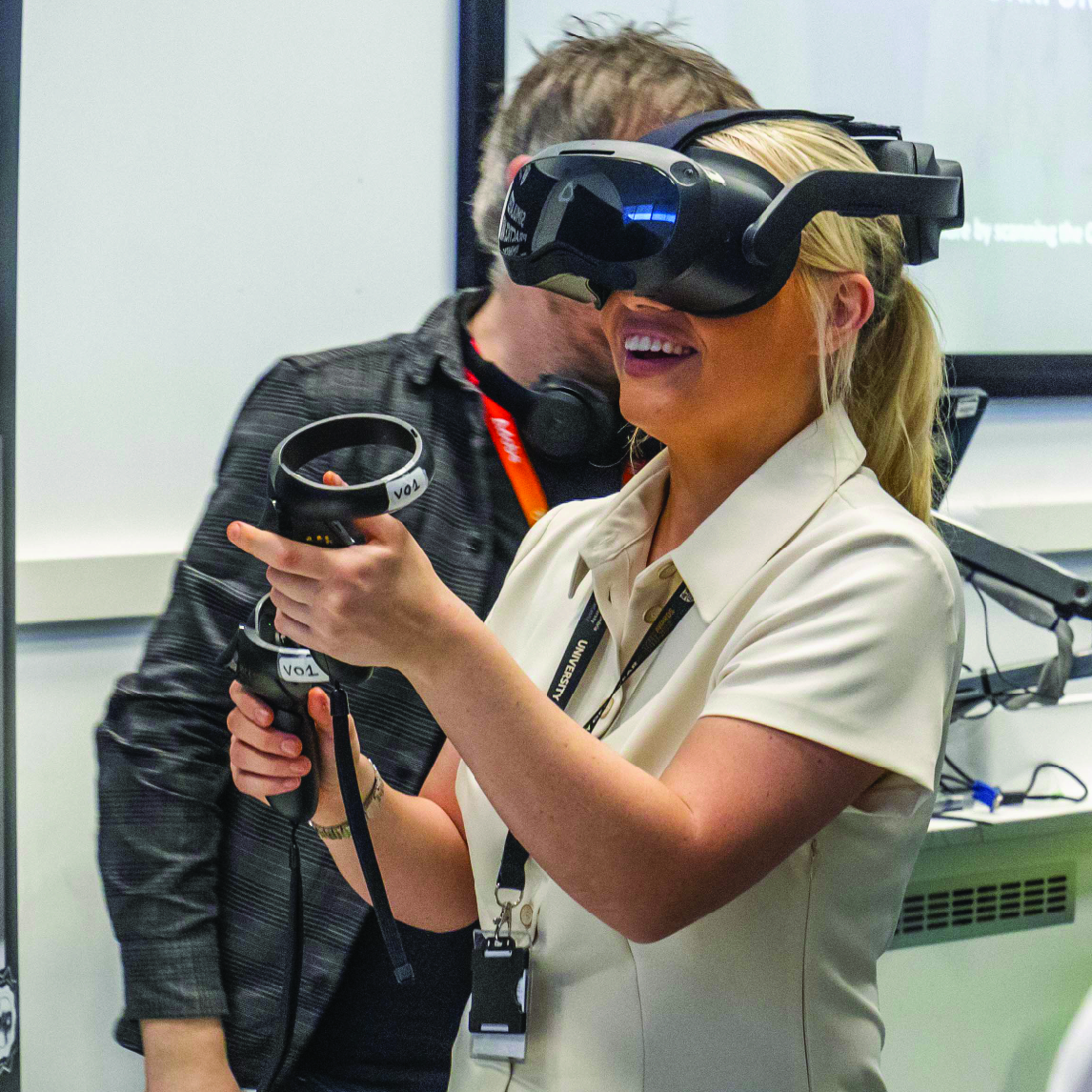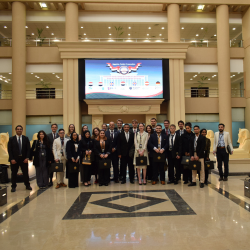-
Study
-
Quick Links
- Course Search
- Unlock Your Potential
- Still time to Apply
- Higher and Degree Apprenticeships
- Continuing Professional Development
- Still time to apply
-
Undergraduate
- Course Search
- Application Guides
- UCAS Exhibitions
- Foundation Years
- Fees and Funding
- School & College Outreach
- Information for Parents
-
Postgraduate
- Course Search
- Application Guide
- Postgraduate Research Degrees
- Flexible Learning
- Fees and Funding
- Change Direction
- Register your Interest
-
Student Life
- Students' Union
- The Hub - Student Blog
- Accommodation
- Northumbria Sport
- Support for Students
-
Experience Northumbria
- Open Days & Events
- Virtual Tours
- Campus Tours
- Life in Newcastle
-
-
International
International
Northumbria’s global footprint touches every continent across the world, through our global partnerships across 17 institutions in 10 countries, to our 277,000 strong alumni community and 150 recruitment partners – we prepare our students for the challenges of tomorrow. Discover more about how to join Northumbria’s global family or our partnerships.
View our Global Footprint-
Quick Links
- Course Search
- Undergraduate Study
- Postgraduate Study
- Information for Parents
- London Campus
- Northumbria Pathway
- Sign up for Information
-
International Students
- Information for Students
- International Events
- Application Guide
- Entry Requirements and Education Country Agents
- Global Offices
- English Requirements
- English Language Centre
- International student support
-
International Fees and Funding
- International Undergraduate Fees
- International Undergraduate Funding
- International Masters Fees
- International Masters Funding
- International Postgraduate Research Fees
- International Postgraduate Research Funding
-
International Partners
- Agent and Representative Network
- Global Partnerships
- Global Community
-
International Mobility
- Information for Northumbria Students
- Information for Incoming Exchange Students
-
-
Business
Business
The world is changing faster than ever before. The future is there to be won by organisations who find ways to turn today's possibilities into tomorrows competitive edge. In a connected world, collaboration can be the key to success.
More on our Business Services -
Research
Research
Northumbria is a research-rich, business-focused, professional university with a global reputation for academic quality. We conduct ground-breaking research that is responsive to the science & technology, health & well being, economic and social and arts & cultural needs for the communities
Discover more about our Research -
About Us
-
About Northumbria
- Our Strategy
- Our Staff
- Place and Partnerships
- Leadership & Governance
- Academic Departments
- University Services
- History of Northumbria
- Contact us
- Online Shop
-
-
Alumni
Alumni
Northumbria University is renowned for the calibre of its business-ready graduates. Our alumni network has over 246,000 graduates based in 178 countries worldwide in a range of sectors, our alumni are making a real impact on the world.
Our Alumni - Work For Us
What will I learn on this module?
This module aims to provide you with a critical understanding of the key contemporary experiences, policies and debates that characterize development in a time of significant geopolitical change and shifting relationships. The module will enable you to develop cutting edge and nuanced analyses of the changing landscape of global development, and to locate a range of important actors in the global development arena. The module critically debates historical relationships between aid and development, and the predominance of western development agendas and approaches; the emergence of new state and non-state actors, and with this new forms of development cooperation that may transcend the traditional and hierarchical North-South aid relationship; and the implications for development theory and practice. Practical exercises will apply your understanding of geopolitical change and its impacts, to real-world case studies.
How will I learn on this module?
In this module you will be exposed to often contrasting development debates and practices through research-led and research-tutored teaching and learning approaches. You will be encouraged to reflect critically upon key geopolitical shifts and the ways they are changing development ideas and practice.
The module will be delivered through a workshop-style of teaching. Sessions will include a mix of lectures, multi-media analysis, seminar-style activities and discussion, practical exercises, and student-led presentations. The sessions will draw significantly from active research projects in which the module teaching team is involved.
This module will be assessed formatively through presentations and in-class discussion around analyses of critical case studies; and summatively with a 2500-word essay (60%) and a 4-page policy brief (40%).
You will also be expected to engage in private and self-directed study. The MSc programme, module guide, internet site and tutor prescription will provide a clear framework for this study.
How will I be supported academically on this module?
Tutorial time will be available to all students (on a group or individual basis) during staff ‘office hours’ or upon appointment with a module tutor.
You will also have access to the e-learning portal with a dedicated internet site to support this module. The site will include electronic copies of module and lecture materials, further reading materials, important module announcements, tutor advice/guidance and further internet links.
You will receive immediate feedback on formative work during the workshops. Small group work also emphasizes peer-to-peer learning.
What will I be expected to read on this module?
All modules at Northumbria include a range of reading materials that students are expected to engage with. Online reading lists (provided after enrolment) give you access to your reading material for your modules. The Library works in partnership with your module tutors to ensure you have access to the material that you need.
What will I be expected to achieve?
Knowledge & Understanding:
1. Develop a critical understanding of how geopolitical change and the emergence of new development actors influences policies and practices of development
2. Evaluate how different philosophical approaches to aid impact practice and the global politics of development
Intellectual / Professional skills & abilities:
3. Develop an ability to communicate to different stakeholders
4. Demonstrate proficiency in deploying appropriate tools for project monitoring and management.
Personal Values Attributes (Global / Cultural awareness, Ethics, Curiosity) (PVA):
5. Demonstrate an awareness of how different actors embody different philosophical approaches and practices.
How will I be assessed?
This module will be assessed formatively through presentations and seminar discussions around analyses of critical case studies; and summatively with a 2500-word essay (60% of module; MLO 1, 2, 3, 4, 5) and via a 4-page (A4) (Times New Roman, font size 12) Policy briefing paper (40% of module) – MLO 1, 2, 3, 4, 5.
Pre-requisite(s)
N/A
Co-requisite(s)
N/A
Module abstract
The rise of emerging economies and the increasing role of non-state actors in development has significant consequences for Global Development with a clear shift to a new geopolitical landscape with new powers, ideologies and agendas. This module is geared to equip students with an up-to-date understanding about the implications of the fast-changing politics of development, and the roles played by new actors. The module critically assesses the historical role played by western donors, and we consider new forms of aid and south-south partnerships in shaping international development agendas and progress. The module draws heavily on staff expertise and direct research experience. The module is essential study for any career in an ever-changing development landscape.
Course info
Credits 20
Level of Study Postgraduate
Mode of Study 16 months Full Time
Department Geography and Environmental Sciences
Location City Campus, Northumbria University
City Newcastle
Start January
All information is accurate at the time of sharing.
Full time Courses are primarily delivered via on-campus face to face learning but could include elements of online learning. Most courses run as planned and as promoted on our website and via our marketing materials, but if there are any substantial changes (as determined by the Competition and Markets Authority) to a course or there is the potential that course may be withdrawn, we will notify all affected applicants as soon as possible with advice and guidance regarding their options. It is also important to be aware that optional modules listed on course pages may be subject to change depending on uptake numbers each year.
Contact time is subject to increase or decrease in line with possible restrictions imposed by the government or the University in the interest of maintaining the health and safety and wellbeing of students, staff, and visitors if this is deemed necessary in future.
Useful Links
Find out about our distinctive approach at
www.northumbria.ac.uk/exp
Admissions Terms and Conditions
northumbria.ac.uk/terms
Fees and Funding
northumbria.ac.uk/fees
Admissions Policy
northumbria.ac.uk/adpolicy
Admissions Complaints Policy
northumbria.ac.uk/complaints









